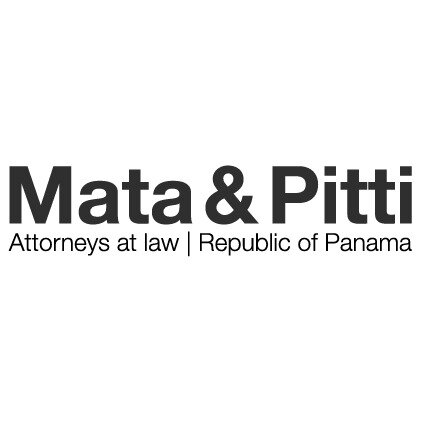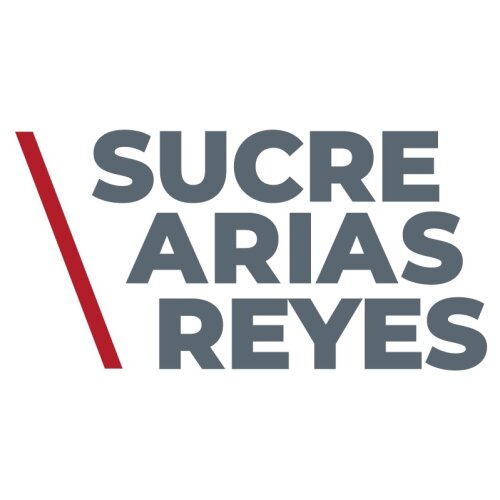Best Water Law Lawyers in Panama
Share your needs with us, get contacted by law firms.
Free. Takes 2 min.
Or refine your search by selecting a city:
List of the best lawyers in Panama
About Water Law in Panama
Water Law in Panama refers to the collection of legal norms, regulations, and principles that govern the use, distribution, conservation, and protection of water resources throughout the country. These laws regulate the manner in which individuals, businesses, and government entities may use both surface and groundwater, including rivers, lakes, and aquifers. The legal framework also sets out penalties for unauthorized use, pollution, or misuse of water, ensuring that water remains a sustainable resource for future generations. Water Law in Panama is essential given the nation’s reliance on its waterways for public consumption, agriculture, industry, navigation, and the Panama Canal.
Why You May Need a Lawyer
Obtaining legal assistance in Water Law can be crucial for a variety of reasons. Many individuals, farmers, or business owners may find themselves needing help when applying for water use permits, understanding their rights to access water sources, or complying with environmental regulations. Disputes over water boundaries or allocation between neighbors or communities often require legal intervention. Developers and investors face complex regulatory processes to ensure their projects align with Panamanian water protection laws. In cases of water contamination or allegations of illegal water use, both lawsuits and administrative penalties may be involved. Engaging a lawyer ensures you protect your interests and operate within Panamanian law.
Local Laws Overview
The principal legal instrument governing water in Panama is Law 35 of 1966 and its related regulations. The Autoridad Nacional de los Servicios Públicos (ASEP) and the Ministerio de Ambiente (MiAmbiente) are the primary governmental bodies administering water resources. Key aspects of Panamanian Water Law include:
- All water resources, including groundwater, are classified as public property managed by the state.
- Permits or concessions are required for the extraction and use of water for consumption, irrigation, or commercial projects.
- Strict regulations aim to ensure water quality and prevent pollution, particularly near protected areas or the Panama Canal watershed.
- There is a permitting process for water infrastructure or hydraulic works such as dams, wells, and pipelines.
- Laws encourage the sustainable use of water and promote conservation efforts, with severe penalties for illegal extraction or contamination.
Frequently Asked Questions
What government entities oversee water rights and usage in Panama?
The main entities are the Autoridad Nacional de los Servicios Públicos (ASEP) and the Ministerio de Ambiente (MiAmbiente). Both oversee various aspects of water management, permitting, and environmental protection.
Is it possible to own water in Panama?
No, water is public property in Panama. Individuals and businesses can obtain rights to use water through permits or concessions but do not own the water itself.
How do I obtain a permit to use water for my property or business?
You must apply to the appropriate government agency, usually MiAmbiente, by submitting technical, environmental, and sometimes social impact documentation. A lawyer can guide you through the specific legal requirements for your case.
What are common penalties for illegal water use?
Penalties can include administrative fines, suspension of permits, and in severe cases, criminal prosecution and closure of facilities found in violation of water laws.
Can communities or neighbors resolve water disputes privately?
While informal agreements are possible, legal disputes over water boundaries or rights often require mediation or litigation, given the public nature of water resources.
Are there regulations regarding water quality standards?
Yes, both public and private users must comply with water quality standards set by national laws to prevent and control pollution.
Does Panama regulate groundwater extraction?
Yes, extracting groundwater, such as from wells, requires a permit, and over-extraction is subject to strict regulation to avoid depletion of aquifers.
Is rainwater harvesting regulated?
Rainwater harvesting for personal and small-scale use is generally allowed, but large-scale systems, especially those affecting local hydrology, may require a permit.
What recourse do I have if my water source becomes contaminated?
You may report the contamination to the authorities, and you may have the right to initiate legal action against those responsible. Consulting a lawyer is key to understanding your options.
Are environmental studies always necessary for water use permits?
Not always, but significant projects or those located near environmentally sensitive areas usually require formal environmental impact studies.
Additional Resources
Those seeking more information or support should consider reaching out to the following resources:
- Ministerio de Ambiente (Ministry of Environment): Responsible for environmental and water resource protection.
- Autoridad Nacional de los Servicios Públicos (ASEP): Oversees utilities, including water concessions and permits.
- Autoridad del Canal de Panamá (ACP): Governs water use in the Panama Canal watershed.
- Municipal governments: Issue local permits and enforce regulations.
- Water user associations and local NGOs: Offer support in resolving communal water issues or advocating for sustainable use.
Next Steps
If you require legal assistance in Water Law in Panama, consider the following steps:
- Define your issue or concern as clearly as possible, gathering any relevant documents or evidence.
- Contact a licensed Panamanian lawyer with experience in water law or environmental matters.
- Consult with local or governmental agencies to understand regulatory requirements or pending deadlines.
- Ensure you comply with any formal application processes or reporting obligations in your situation.
- Stay informed about updates to water law and environmental regulations that may impact your rights or responsibilities.
Being proactive and well-informed is the best way to protect your interests and ensure lawful water use in Panama.
Lawzana helps you find the best lawyers and law firms in Panama through a curated and pre-screened list of qualified legal professionals. Our platform offers rankings and detailed profiles of attorneys and law firms, allowing you to compare based on practice areas, including Water Law, experience, and client feedback.
Each profile includes a description of the firm's areas of practice, client reviews, team members and partners, year of establishment, spoken languages, office locations, contact information, social media presence, and any published articles or resources. Most firms on our platform speak English and are experienced in both local and international legal matters.
Get a quote from top-rated law firms in Panama — quickly, securely, and without unnecessary hassle.
Disclaimer:
The information provided on this page is for general informational purposes only and does not constitute legal advice. While we strive to ensure the accuracy and relevance of the content, legal information may change over time, and interpretations of the law can vary. You should always consult with a qualified legal professional for advice specific to your situation.
We disclaim all liability for actions taken or not taken based on the content of this page. If you believe any information is incorrect or outdated, please contact us, and we will review and update it where appropriate.
Browse water law law firms by city in Panama
Refine your search by selecting a city.

















